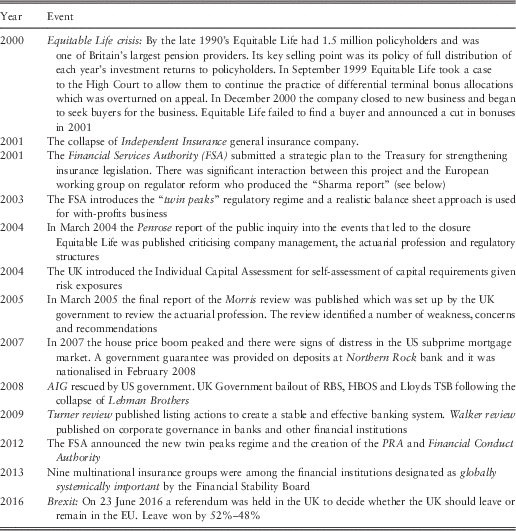Fintech
Insurance Company and Former CFO Charged With Faulty Loss Reserves Disclosures

Washington, D.C.–(Newsfile Corp. – June 17, 2020) – The Securities and Exchange Commission today charged international insurance company AmTrust Financial Services Inc. and its former CFO Ronald E. Pipoly Jr. with failing to disclose material facts about how the company estimated its insurance losses and reserves. They have agreed to pay a combined $10.5 million to settle the SEC’s charges.
According to the SEC’s complaint, AmTrust and Pipoly failed to properly disclose the company’s process for reporting management’s best estimate of loss reserves in its filings with the SEC. The complaint alleges that AmTrust and Pipoly disclosed the company’s general actuarial process for estimating loss reserves, but failed to disclose that Pipoly made consolidated accounting adjustments that did not properly consider the actuarial analyses and diverged from the company’s actuarial estimates. The complaint further alleges that AmTrust failed to disclose the specific factors or assumptions supporting Pipoly’s judgmental adjustments, and failed to maintain sufficient supporting documentation for management’s best estimate. Further, AmTrust and Pipoly allegedly failed to disclose the loss contingencies created by Pipoly’s judgmental adjustments to the company’s historical experience. According to the complaint, by the end of 2015, Pipoly’s total adjustments exceeded $300 million and impacted all of AmTrust’s reporting segments.
“Disclosures regarding an insurance company’s loss reserve process allow investors to judge the reliability of the company’s numbers,” said David Peavler, Director of the SEC’s Fort Worth Regional Office. “As we allege, AmTrust never disclosed that Pipoly repeatedly deviated from the reserving processes described in the company’s filings, and changed the company’s actuarially determined reserves estimates.”
The SEC’s complaint, filed in federal court in the Southern District of New York, charges AmTrust and Pipoly with violating Section 17(a)(2) and (3) of the Securities Act of 1933, and violating or aiding and abetting violations of the reporting, recordkeeping, and internal controls provisions of the federal securities laws. Without admitting or denying the SEC’s allegations, AmTrust and Pipoly have agreed to permanent injunctions against future violations of these provisions and to pay penalties of $10.3 million and $75,000, respectively. Pipoly has also agreed to disgorge $140,000 and pay $22,499 in prejudgment interest. The settlements with AmTrust and Pipoly are subject to court approval.
The SEC’s investigation was conducted by Christopher W. Ahart, Kimberly Cain, Keith J. Hunter, and Franklin Wyman, and supervised by Jim Etri and Eric Werner of the Fort Worth Regional Office. The SEC’s litigation is led by Keefe Bernstein and B. David Fraser of the Fort Worth office.
Fintech
Central banks and the FinTech sector unite to change global payments space

The BIS, along with seven leading central banks and a cohort of private financial firms, has embarked on an ambitious venture known as Project Agorá.
Named after the Greek word for “marketplace,” this initiative stands at the forefront of exploring the potential of tokenisation to significantly enhance the operational efficiency of the monetary system worldwide.
Central to this pioneering project are the Bank of France (on behalf of the Eurosystem), the Bank of Japan, the Bank of Korea, the Bank of Mexico, the Swiss National Bank, the Bank of England, and the Federal Reserve Bank of New York. These institutions have joined forces under the banner of Project Agorá, in partnership with an extensive assembly of private financial entities convened by the Institute of International Finance (IIF).
At the heart of Project Agorá is the pursuit of integrating tokenised commercial bank deposits with tokenised wholesale central bank money within a unified, public-private programmable financial platform. By harnessing the advanced capabilities of smart contracts and programmability, the project aspires to unlock new transactional possibilities that were previously infeasible or impractical, thereby fostering novel opportunities that could benefit businesses and consumers alike.
The collaborative effort seeks to address and surmount a variety of structural inefficiencies that currently plague cross-border payments. These challenges include disparate legal, regulatory, and technical standards; varying operating hours and time zones; and the heightened complexity associated with conducting financial integrity checks (such as anti-money laundering and customer verification procedures), which are often redundantly executed across multiple stages of a single transaction due to the involvement of several intermediaries.
As a beacon of experimental and exploratory projects, the BIS Innovation Hub is committed to delivering public goods to the global central banking community through initiatives like Project Agorá. In line with this mission, the BIS will soon issue a call for expressions of interest from private financial institutions eager to contribute to this ground-breaking project. The IIF will facilitate the involvement of private sector participants, extending an invitation to regulated financial institutions representing each of the seven aforementioned currencies to partake in this transformative endeavour.
Source: fintech.globa
The post Central banks and the FinTech sector unite to change global payments space appeared first on HIPTHER Alerts.
Fintech
TD Bank inks multi-year strategic partnership with Google Cloud

TD Bank has inked a multi-year deal with Google Cloud as it looks to streamline the development and deployment of new products and services.
The deal will see the Canadian banking group integrate the vendor’s cloud services into a wider portion of its technology solutions portfolio, a move which TD expects will enable it “to respond quickly to changing customer expectations by rolling out new features, updates, or entirely new financial products at an accelerated pace”.
This marks an expansion of the already established relationship between TD Bank and Google Cloud after the group previously adopted the vendor’s Google Kubernetes Engine (GKE) for TD Securities Automated Trading (TDSAT), the Chicago-based subsidiary of its investment banking unit, TD Securities.
TDSAT uses GKE for process automation and quantitative modelling across fixed income markets, resulting in the development of a “data-driven research platform” capable of processing large research workloads in trading.
Dan Bosman, SVP and CIO of TD Securities, claims the infrastructure has so far supported TDSAT with “compute-intensive quantitative analysis” while expanding the subsidiary’s “trading volumes and portfolio size”.
TD’s new partnership with Google Cloud will see the group attempt to replicate the same level of success across its entire portfolio.
Source: fintechfutures.com
The post TD Bank inks multi-year strategic partnership with Google Cloud appeared first on HIPTHER Alerts.
Fintech
MAS launches transformative platform to combat money laundering

The MAS has unveiled Cosmic, an acronym for Collaborative Sharing of Money Laundering/Terrorism Financing Information and Cases, a new money laundering platform.
According to Business Times, launched on April 1, Cosmic stands out as the first centralised digital platform dedicated to combating money laundering, terrorism financing, and proliferation financing on a worldwide scale. This move follows the enactment of the Financial Services and Markets (Amendment) Act 2023, which, along with its subsidiary legislation, commenced on the same day to provide a solid legal foundation and safeguards for information sharing among financial institutions (FIs).
Cosmic enables participating FIs to exchange customer information when certain “red flags” indicate potential suspicious activities. The platform’s introduction is a testament to MAS’s commitment to ensuring the integrity of the financial sector, mandating participants to establish stringent policies and operational safeguards to maintain the confidentiality of the shared information. This strategic approach allows for the efficient exchange of intelligence on potential criminal activities while protecting legitimate customers.
Significantly, Cosmic was co-developed by MAS and six leading commercial banks in Singapore—OCBC, UOB, DBS, Citibank, HSBC, and Standard Chartered—which will serve as participant FIs during its initial phase. The initiative emphasizes voluntary information sharing focused on addressing key financial crime risks within the commercial banking sector, such as the misuse of legal persons, trade finance, and proliferation financing.
Loo Siew Yee, assistant managing director for policy, payments, and financial crime at MAS, highlighted that Cosmic enhances the existing collaboration between the industry and law enforcement authorities, fortifying Singapore’s reputation as a well-regulated and trusted financial hub. Similarly, Pua Xiao Wei of Citi Singapore and Loretta Yuen of OCBC have expressed their institutions’ support for Cosmic, noting its potential to ramp up anti-money laundering efforts and its significance as a development in the banking sector’s ability to combat financial crimes efficiently. DBS’ Lam Chee Kin also praised Cosmic as a “game changer,” emphasizing the careful balance between combating financial crime and ensuring legitimate customers’ access to financial services.
Source: fintech.global
The post MAS launches transformative platform to combat money laundering appeared first on HIPTHER Alerts.
-
Latest News5 days ago
DEMAND AT ASIAN FACTORIES RISES AT STRONGEST RATE IN OVER 2 YEARS, IMPROVING NEAR-TERM GROWTH OUTLOOK FOR MANUFACTURING WORLDWIDE: GEP GLOBAL SUPPLY CHAIN VOLATILITY INDEX
-
Latest News6 days ago
Bitrue Gears Up for 2024 Bitcoin Halving with Trading Competition
-
Latest News6 days ago
Global Airlines Appoints New Head of Finance from KPMG
-
Latest News7 days ago
Former Dreambox CEO Jessie Woolley-Wilson Joins Owl Ventures as Operating Partner
-
Latest News5 days ago
Spendesk combines procurement with spend management through Okko acquisition
-
Latest News4 days ago
“The Hainan FTP and Me”: Looking at Hainan’s Transformations
-
Latest News6 days ago
BtcTurk Organizes Half Marathon in Istanbul to Celebrate Halving Period
-
Latest News6 days ago
99Bitcoins Reveals Website Revamp and Expansion Plans With Incentivized Learning Through Tokenization



